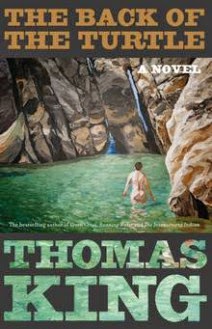 |
| 4 out of 5 stars |
When a beautiful, aspiring writer strides into the East Village bookstore where Joe Goldberg works, he does what anyone would do: he Googles the name on her credit card.
There is only one Guinevere Beck in New York City. She has a public Facebook account and Tweets incessantly, telling Joe everything he needs to know: she is simply Beck to her friends, she went to Brown University, she lives on Bank Street, and she’ll be at a bar in Brooklyn tonight—the perfect place for a “chance” meeting.
As Joe invisibly and obsessively takes control of Beck’s life, he orchestrates a series of events to ensure Beck finds herself in his waiting arms. Moving from stalker to boyfriend, Joe transforms himself into Beck’s perfect man, all while quietly removing the obstacles that stand in their way—even if it means murder.
I believe that this is the first book that I’ve encountered written in the second person. It felt awkward at first, but I was soon so immersed in the story that it ceased to matter.
It is also unusual to be able to identify with a male stalker, but I found myself reluctantly doing that as well. The author managed to get inside his skin in a very believable way. I was also amused when he remembered his previous “girlfriend” (whom he had murdered) and her name was Caroline (the same as the author). I appreciated that darkly humourous detail.
I’ve read a bit of non-fiction about stalking, and this novel conformed very well to known behaviour of such people. To some extent I thought that Joe may be a bit more social than most stalkers, but he was also described by other characters as “intense” and his obvious disdain for those that he considered less intelligent was right on the button, as was his ability to lie without compunction and to make up stories on the fly.
In this instance, Joe chose a woman who gives his a run for his money—she is a conscience-free narcissist herself and leads him a merry chase.
Not recommended for those who have ever been pursued by the obsessed.








